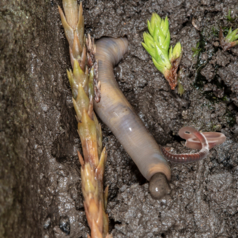
Before exploring about, are earthworms beneficial for plants or not? We should have little knowledge about earthworms. I think everyone has seen earthworms. The earthworm, also called angleworm, inhabits most temperate soils and many tropical soils. There are around 7,000 species of earthworms living in different types of environments. Seasonally, they are found at all depths in the soil. They have a long, dainty body and no legs. Many worms are parasites that live on or in other creatures and utilize solid mouthparts to feed. As you know everything has advantages and disadvantages. Earthworms also have pros and cons for plants.
Why are earthworms good for plants
When anyone thinks hear the name of earthworms, a image a little worm with lots of benefits appears in mind. But, are earthworms really good for plants. There are lots of reason that why are earthworms beneficial for plant. due to this earthworms also known as the friends of farmer. Some benefits of earthworms, we will read in this article.
1. Boost Microbial Activity : are earthworms good for plants
2. Blend the soil: are earthworms good for plants
Blend the soil. As they consume natural matter and mineral particles, earthworms discharge casted soil as a waste material. According to Charles Darwin, earthworms can carry soil from the lower layers to the surface and furthermore convey natural matter deep into the soil. In ten to twenty years, earthworms can turn over six inches (15 cm) of soil.
3. Increase penetration to soil
Earthworms improve soil porosity as they move through it. A few worms species dig tunnels into the soil that are extremely durable. The tunnels can last long after the occupants have passed away, and they can be a strong conductor of soil waste, especially in heavy rainfall conditions. Moreover, the tunnels limit surface water disintegration. the horizontal tunneling of different species in a few top inches of soil increases drainage and porosity. Earthworms improve soil porosity as they move through it. A few worms species dig tunnels into the soil that are extremely durable. The tunnels can last long after the occupants have passed away, and they can be a strong conductor of soil waste, especially in heavy rainfall conditions. Moreover, the tunnels limit surface water disintegration. The horizontal tunneling of different species in a few top inches of soil increases drainage and porosity.
4. Develop water-holding capacity: are earthworms good for plants
By dividing natural matter, and expanding soil porosity and accumulation, earthworms can essentially build the water-holding limit of soils.
5.Give channels to root development
The channels made by deep tunneling earthworms are fixed with easily accessible supplements and make it simpler for roots to enter deeply into the soil
Why are earthworms not good for plants
Do you have plants at your home? if yes No doubt, you are searching for ways to keep your plants healthy and strong. There are a lot of methods ways to take care of plants. Adding earthworms is a famous method to take care of plants. Before focusing on adding earthworms, you have to familiar with some other facts about earthworms such as why and when are earthworms not good for plants.
After exploring lot of information about earthworms i found that earthworms don’t have any serious disadvantage but in negative case where an excessive number of worms may not be beneficial is in forested regions where the worms consume the vast majority of the top dead leaves. The dead leaves provide a cool, moist environment for young plants and seeds to sprout since it gives them a cool, moist climate. Unfortunately, worms love such a climate and are prone to migrate to such regions.
FAQs
Earthworms aren’t usually harmful to plants. In fact, they’re productive, circulating air through the soil and enhancing it with their castings. But In pots, their main food, the organic material present in the soil, is not very rich in resources, since most fertilized soils are made up of peat or coir (coco fiber), two materials slow to break down that contribute almost nothing that a worm can consume. Those conditions cause the worms to eat the young roots and foundations of the plant filling the pot, which can hinder its development, even if it dies.
The scientific name of earthworm is Lumbriciana.
This annelid worm admonition is not entirely accurate. Darwin (1881) found that they sink huge stones, asphalts, and buildings where the soil is wet. These stones and designs slant and sink when their tunnels collapse. Furthermore, worm castings destroy the aesthetics of yards and overgrown scenes in bonsai, as well as deny sunlight to vegetation covered in mud.
